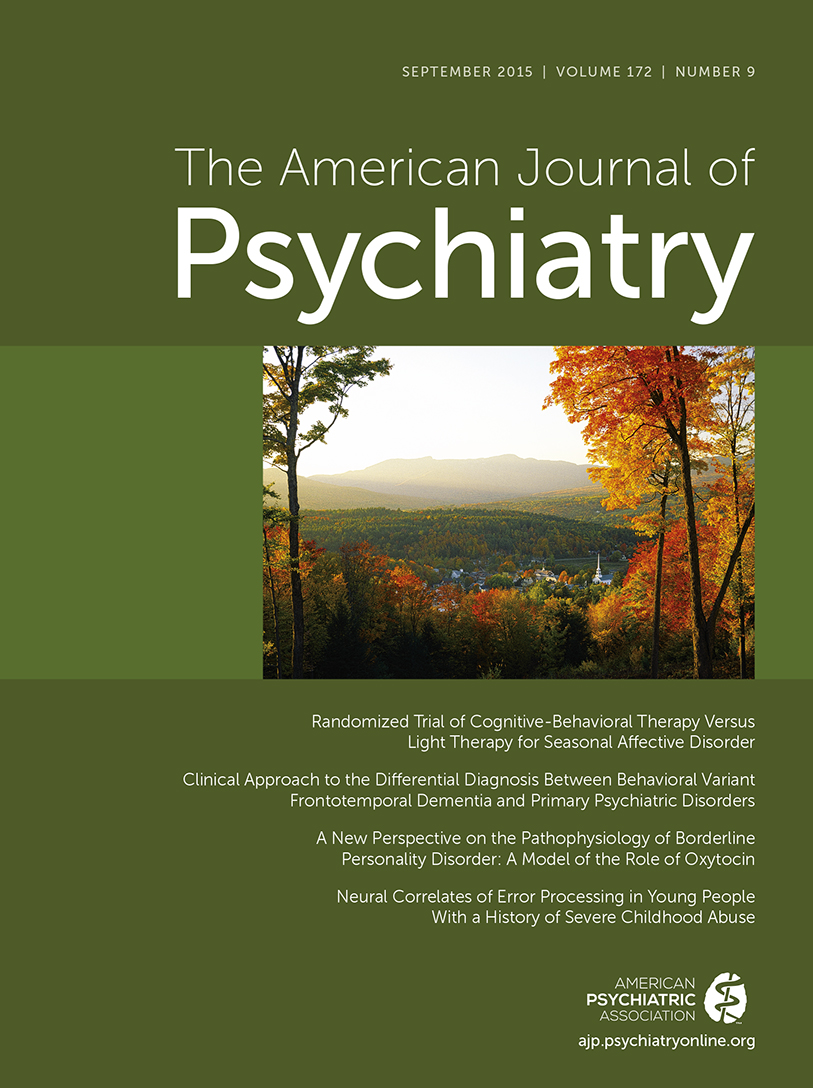A New Perspective on the Pathophysiology of Borderline Personality Disorder: A Model of the Role of Oxytocin
Abstract
Borderline personality disorder is characterized by three domains of dysfunction: affect dysregulation, behavioral dyscontrol, and interpersonal hypersensitivity. Interpersonal hypersensitivity is associated with a (pre)attentive bias toward negative social information and, on the level of the brain, enhanced bottom-up emotion generation, while affect dysregulation results from abnormal top-down processes. Additionally, the problems of patients with borderline personality disorder in interpersonal functioning appear to be related to alterations in the (social) reward and empathy networks. There is increasing evidence that the oxytocinergic system may be involved in these domains of dysfunction and may thus contribute to borderline psychopathology and even open new avenues for targeted pharmacotherapeutic approaches. From studies in healthy and clinical subjects (including first studies with borderline personality disorder patients), the authors provide a conceptual framework for future research in borderline personality disorder that is based on oxytocinergic modulation of the following biobehavioral mechanisms: 1) the brain salience network favoring adaptive social approach behavior, 2) the affect regulation circuit normalizing top-down processes, 3) the mesolimbic circuit improving social reward experiences, and 4) modulating brain regions involved in cognitive and emotional empathy. In addition, preliminary data point to interactions between the oxytocin and cannabinoid system, with implications for pain processing. These mechanisms, which the authors believe to be modulated by oxytocin, may not be specific for borderline personality disorder but rather may be common to a host of psychiatric disorders in which disturbed parent-infant attachment is a major etiological factor.



